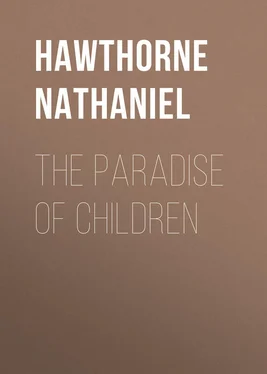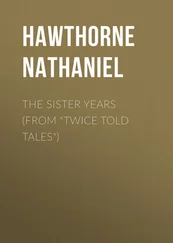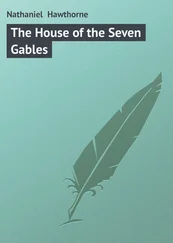Nathaniel Hawthorne - The Paradise of Children
Здесь есть возможность читать онлайн «Nathaniel Hawthorne - The Paradise of Children» — ознакомительный отрывок электронной книги совершенно бесплатно, а после прочтения отрывка купить полную версию. В некоторых случаях можно слушать аудио, скачать через торрент в формате fb2 и присутствует краткое содержание. Жанр: literature_19, foreign_antique, foreign_prose, foreign_children, на английском языке. Описание произведения, (предисловие) а так же отзывы посетителей доступны на портале библиотеки ЛибКат.
- Название:The Paradise of Children
- Автор:
- Жанр:
- Год:неизвестен
- ISBN:нет данных
- Рейтинг книги:4 / 5. Голосов: 1
-
Избранное:Добавить в избранное
- Отзывы:
-
Ваша оценка:
- 80
- 1
- 2
- 3
- 4
- 5
The Paradise of Children: краткое содержание, описание и аннотация
Предлагаем к чтению аннотацию, описание, краткое содержание или предисловие (зависит от того, что написал сам автор книги «The Paradise of Children»). Если вы не нашли необходимую информацию о книге — напишите в комментариях, мы постараемся отыскать её.
The Paradise of Children — читать онлайн ознакомительный отрывок
Ниже представлен текст книги, разбитый по страницам. Система сохранения места последней прочитанной страницы, позволяет с удобством читать онлайн бесплатно книгу «The Paradise of Children», без необходимости каждый раз заново искать на чём Вы остановились. Поставьте закладку, и сможете в любой момент перейти на страницу, на которой закончили чтение.
Интервал:
Закладка:
Nathaniel Hawthorne
The Paradise of Children / (From: «A Wonder-Book for Girls and Boys»)
TANGLEWOOD PLAY-ROOM
The golden days of October passed away, as so many other Octobers have, and brown November likewise, and the greater part of chill December, too. At last came merry Christmas, and Eustace Bright along with it, making it all the merrier by his presence. And, the day after his arrival from college, there came a mighty snow-storm. Up to this time, the winter had held back, and had given us a good many mild days, which were like smiles upon its wrinkled visage. The grass had kept itself green, in sheltered places, such as the nooks of southern hill-slopes, and along the lee of the stone fences. It was but a week or two ago, and since the beginning of the month, that the children had found a dandelion in bloom, on the margin of Shadow Brook, where it glides out of the dell.
But no more green grass and dandelions now. This was such a snow-storm! Twenty miles of it might have been visible at once, between the windows of Tanglewood and the dome of Taconic, had it been possible to see so far, among the eddying drifts that whitened all the atmosphere. It seemed as if the hills were giants, and were flinging monstrous handfuls of snow at one another, in their enormous sport. So thick were the fluttering snow-flakes, that even the trees, midway down the valley, were hidden by them the greater part of the time. Sometimes, it is true, the little prisoners of Tanglewood could discern a dim outline of Monument Mountain, and the smooth whiteness of the frozen lake at its base, and the black or gray tracts of woodland in the nearer landscape. But these were merely peeps through the tempest.
Nevertheless, the children rejoiced greatly in the snowstorm. They had already made acquaintance with it, by tumbling heels over head into its highest drifts, and flinging snow at one another, as we have just fancied the Berkshire mountains to be doing. And now they had come back to their spacious play-room, which was as big as the great drawing-room, and was lumbered with all sorts of playthings, large and small. The biggest was a rocking-horse, that looked like a real pony; and there was a whole family of wooden, waxen, plaster, and china dolls, besides rag-babies; and blocks enough to build Bunker Hill Monument, and nine-pins, and balls, and humming-tops, and battledores, and grace-sticks, and skipping-ropes, and more of such valuable property than I could tell of in a printed page. But the children liked the snow-storm better than them all. It suggested so many brisk enjoyments for to-morrow, and all the remainder of the winter. The sleigh-ride; the slides down hill into the valley; the snow-images that were to be shaped out; the snow-fortresses that were to be built; and the snow-balling to be carried on!
So the little folks blessed the snow-storm, and were glad to see it come thicker and thicker, and watched hopefully the long drift that was piling itself up in the avenue, and was already higher than any of their heads.
“Why, we shall be blocked up till spring!” cried they, with the hugest delight. “What a pity that the house is too high to be quite covered up! The little red house, down yonder, will be buried up to its eaves.”
“You silly children, what do you want of more snow?” asked Eustace, who, tired of some novel that he was skimming through, had strolled into the play-room. “It has done mischief enough already, by spoiling the only skating that I could hope for through the winter. We shall see nothing more of the lake till April; and this was to have been my first day upon it! Don’t you pity me, Primrose?”
“O, to be sure!” answered Primrose, laughing. “But, for your comfort, we will listen to another of your old stories, such as you told us under the porch, and down in the hollow, by Shadow Brook. Perhaps I shall like them better now, when there is nothing to do, than while there were nuts to be gathered, and beautiful weather to enjoy.”
Hereupon, Periwinkle, Clover, Sweet Fern, and as many others of the little fraternity and cousinhood as were still at Tanglewood, gathered about Eustace, and earnestly besought him for a story. The student yawned, stretched himself, and then, to the vast admiration of the small people, skipped three times hack and forth over the top of a chair, in order, as he explained to them, to set his wits in motion.
“Well, well, children,” said he, after these preliminaries, “since you insist, and Primrose has set her heart upon it, I will see what can be done for you. And, that you may know what happy days there were before snowstorms came into fashion, I will tell you a story of the oldest of all old times, when the world was as new as Sweet Fern’s bran-new humming-top. There was then but one season in the year, and that was the delightful summer; and but one age for mortals, and that was childhood.”
“I never heard of that before,” said Primrose.
“Of course, you never did,” answered Eustace. “It shall be a story of what nobody but myself ever dreamed of, – a Paradise of children, – and how, by the naughtiness of just such a little imp as Primrose here, it all came to nothing.”
So Eustace Bright sat down in the chair which he had just been skipping over, took Cowslip upon his knee, ordered silence throughout the auditory, and began a story about a sad naughty child, whose name was Pandora, and about her playfellow Epimetheus. You may read it, word for word, in the pages that come next.
THE PARADISE OF CHILDREN
Long, long ago, when this old world was in its tender infancy, there was a child, named Epimetheus, who never had either father or mother; and, that he might not be lonely, another child, fatherless and motherless like himself, was sent from a far country, to live with him, and be his playfellow and helpmate. Her name was Pandora.
The first thing that Pandora saw, when she entered the cottage where Epimetheus dwelt, was a great box. And almost the first question which she put to him, after crossing the threshold, was this, —
“Epimetheus, what have you in that box?”
“My dear little Pandora,” answered Epimetheus, “that is a secret, and you must be kind enough not to ask any questions about it. The box was left here to be kept safely, and I do not myself know what it contains.”
“But, who gave it to you?” asked Pandora. “And where did it come from?”
“That is a secret, too,” replied Epimetheus.
“How provoking!” exclaimed Pandora, pouting her lip. “I wish the great ugly box were out of the way!”
“O come, don’t think of it, any more,” cried Epimetheus. “Let us run out of doors, and have some nice play with the other children.”
It is thousands of years since Epimetheus and Pandora were alive; and the world, nowadays, is a very different sort of thing from what it was in their time. Then, everybody was a child. There needed no fathers and mothers to take care of the children; because there was no danger, nor trouble of any kind, and no clothes to be mended, and there was always plenty to eat and drink. Whenever a child wanted his dinner, he found it growing on a tree; and, if he looked at the tree in the morning, he could see the expanding blossom of that night’s supper; or, at eventide, he saw the tender bud of to-morrow’s breakfast. It was a very pleasant life indeed. No labor to be done, no tasks to be studied; nothing but sports and dances, and sweet voices of children talking, or carolling like birds, or gushing out in merry laughter, throughout the livelong day.
What was most wonderful of all, the children never quarrelled among themselves; neither had they any crying fits; nor, since time first began, had a single one of these little mortals ever gone apart into a corner, and sulked. O, what a good time was that to be alive in! The truth is, those ugly little winged monsters, called Troubles, which are now almost as numerous as mosquitoes, had never yet been seen on the earth. It is probable that the very greatest disquietude which a child had ever experienced was Pandora’s vexation at not being able to discover the secret of the mysterious box.
Читать дальшеИнтервал:
Закладка:
Похожие книги на «The Paradise of Children»
Представляем Вашему вниманию похожие книги на «The Paradise of Children» списком для выбора. Мы отобрали схожую по названию и смыслу литературу в надежде предоставить читателям больше вариантов отыскать новые, интересные, ещё непрочитанные произведения.
Обсуждение, отзывы о книге «The Paradise of Children» и просто собственные мнения читателей. Оставьте ваши комментарии, напишите, что Вы думаете о произведении, его смысле или главных героях. Укажите что конкретно понравилось, а что нет, и почему Вы так считаете.












